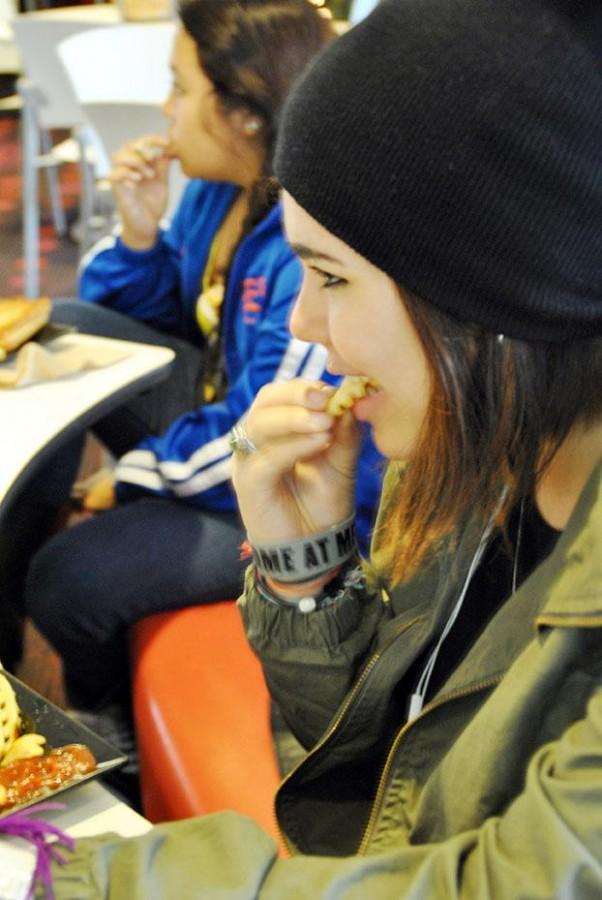University restaurant go-ers can breathe a bit easier when it comes to food safety.
Uptown New Orleans eateries are doing a good job upholding retail food establishment sanitary code, according to the Louisiana Department of Health and Hospitals Office of Public Health.
Uptown restaurants “have a high regard for the code,” J. T. Lane, assistant secretary for the Office of Public Health, said.
The purpose of the sanitary code is to “keep everyone healthy and safe by minimizing the spread of pathogens and food-borne illness,” Lane said.
Last year 651 inspections were conducted at 290 food establishments in Uptown; 2,700 violations were found, 415 of which were critical violations with more than half corrected onsite.
According to the November 2012 Regulation of Food Safety in Retail Food Establishments audit, the Louisiana Legislative Auditor called out the Office of Public Health for lack of inspections. The report cited that from 2009 to 2011, the state conducted only 1,403 of 7,252 inspections of high-risk food establishments in Louisiana, based on the department’s risk model for four inspections annually for high-risk food establishments. It also stated that 32 percent of re-inspections were not conducted throughout the state.
“It’s concerning,” Heather Bacque, general manager of Loyola Dinning Services, said about the recent Louisiana Legislative Auditor report.
“I’m not scared about that here, but I’m worried for some smaller mom-and-pop places,” Bacque said. “We will see some sweeping changes. There will probably be increased inspection.”
Retail food establishments,
depending on the risk, are inspected one to four times a year, with inspectors looking for both critical and non-critical violations.
“Critical violations pose the highest health risk,” Lane said.
Critical violations can range from “food not being dated to not storing chemical cleaners properly,” Lane said. “These are things inspectors don’t want to find.”
Popular food establishments such as Bruno’s Tavern, Reginelli’s Pizzeria, Crepes A La Cart, Favori’s and Pepperoni Café had no critical violations found.
“People trust you with their food,” Maritza Hyde, owner of Pepperoni Cafe, said, “You have to cook like you’re cooking for your family. In our case, that’s what we do. We make sure everything is clean and food is fresh.”
“Our experience is that inspectors really do check everything, even if there’s a little damage on a table,” Hyde said. “They come very often – probably every four months or so.”
“You’re not only here to make money, you’re here to give a service,” Hyde said. “If people are trusting you with their health, you have to do your best.”
Loyola University Dining Services also had a long line of glowing food inspection reports, with no critical violations found.
“Ever since I’ve been here, we’ve had great inspections,” Bacque said.
This may be because Sodexo does internal inspections and is inspected by the state.
Sodexo inspections are “a lot more strict than state and city standards because they try to incorporate all states’ codes,” Bacque said. “We have books of temperature logs – the state doesn’t really look at them, but Sodexo does.”
“We feed 2,000 people a day, at least. That’s a lot of people to be responsible for,” Bacque said.
Restaurants with critical violations in the past, such as Mona’s Café and Camelia Grill, have improved in recent reports, with critical violations remedied. Rally’s Hamburgers on South Carrollton Avenue dipped from four critical violations in April 2012 to just one in October 2012.
“I think the overall process is positive,” Rhonda Conley, vice president of operations of O’Henry’s Food & Spirits, said about food establishment inspections.
“I look at the health inspectors as a tool in my business,” Conley said. “They keep you on your toes,
make sure you’re staying focused and that you keep things up to standard.”
“I see an inspector once every three months,” Conley said. “They cite me for the peanuts every time.”
Lauren Irwin can be reached at [email protected]






